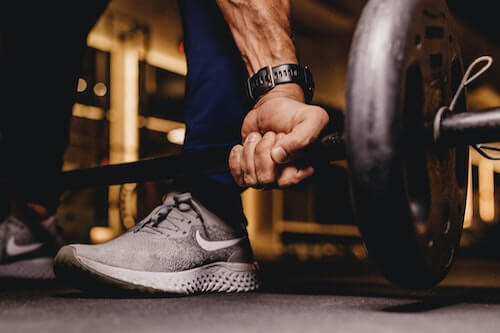The Benefits of Protein for Health and Fitness

© Ivan Torres
The benefits of protein are vast and vital in a healthy lifestyle. It is a necessary component of your diet, but the reasons behind this can be complex. The questions we are targeting in this article are: What does protein have to do with fitness? And what are the advantages of protein intake for someone on their fitness journey?
What is Protein?
To figure out the benefits of protein, it is important to first take it back to the basics of what protein actually is. It is one of the three major components in a person’s diet. The others are fat and carbohydrates. Proteins are made up of amino acids, which are then used in a myriad of different ways within the body.
Amino acids and protein, in general, make up the main components of the muscles, skin, tissue, bones and organs. When they are consumed, the body breaks down the amino acids during digestion. They are then used to create new proteins in the body wherever they are needed. If you don’t eat enough protein, your body begins to take it from other places, leading to muscle breakdown.
Protein Makes You Feel Full
Protein can make you feel fuller for longer than carbohydrates or fat. This feeling of satiety can benefit athletes who need to fuel their bodies for longer stretches of time when they work out or train. In addition, because protein reduces the appetite and can keep hunger levels at bay, it can help those who are looking to lose weight by reducing their calorie intake.
Protein Boosts Your Metabolism
In addition to reducing your appetite, eating more protein can also temporarily boost your metabolism. To put it simply, the body uses energy to digest the food and sort through the nutrients. This is known as the thermic effect of food or TEF, and the thermic effect of protein is much higher than that of carbs or fat.
Protein Helps to Build & Maintain Muscle
As mentioned above, protein is one of the building blocks for your muscles. And so, eating the right amount of protein helps promote muscle mass and prevents muscle wasting. If you do a lot of exercising, whether cardio or weights, you need to make sure that you are eating enough protein.

If your fitness goals include building more muscle mass, then you would need to eat larger amounts of protein to maintain your higher muscle mass and make it easier to build onto.
Protein is Good for Your Body
Protein has a number of functions within the body, as outlined already. Its uses within the different parts of the body mean that eating a high protein diet can help your body to recover more quickly after an injury. However, there is a misconception about a high protein diet; some people believe that a high protein diet can be harmful to the kidneys. But this is usually only the case for those who already suffer from a pre-existing kidney condition or low functioning kidneys.
How Much Protein Should You Eat & How Often?

Now that the basics and the benefits of protein and how it relates to fitness has been covered. It is time to discuss how much protein you need to supplement your workouts. To work out how much protein you should be eating, you first need to know your body weight. If you are moderately active, then you should aim for between 0.5 and 0.75 grams of protein per pound of body weight. If you would class yourself as extremely active, then you might want to aim for between 0.8 and 0.85 grams per pound of body weight. Eating more than this has not been proven to have any additional benefits.
The timing of your protein intake is especially important for athletes or, in fact, anyone who is trying to build muscle. Exercise in general but especially strength and resistance training can stress the muscles and so consuming protein after a workout is important as it helps to repair any damage to the muscle, and in fact, it can tack on more mass. You should consume at least 20 grams of protein within thirty minutes of exercising, and you should consume more protein during your meals on training days.
Where Can You Find Protein?
The protein that you need for your fitness journey should include all of the essential amino acids. You can find high-quality protein sources in animal-based products such as meat, fish, dairy and eggs. If you are plant-based, then there are other options then there are other options such as soy, tofu or pea protein. You can even find protein powders or supplements to increase your consumption of protein. These protein powders are more convenient; they make it easier to get your protein while you are on the go. Becomeio has a range of whey protein and plant-based proteins to choose from. They also have some useful resources for beginners, including this guide to the best pea proteins, so be sure to consult them before buying.



